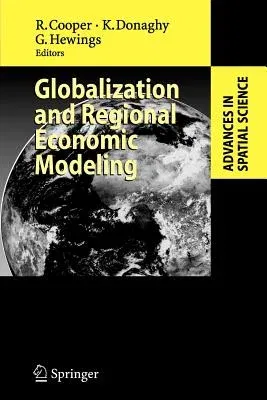Globalization and Regional Economic ModelingPaperback, 19 November 2010

Qty
1
Turbo
Ships in 2 - 3 days
In Stock
Free Delivery
Cash on Delivery
15 Days
Free Returns
Secure Checkout
Part of Series
Advances in Spatial Science
Part of Series
Advances in Spatial Science Advances in Spatial Science
Print Length
475 pages
Language
English
Publisher
Springer
Date Published
19 Nov 2010
ISBN-10
3642091512
ISBN-13
9783642091513
Description
Product Details
Book Format:
Paperback
Country of Origin:
NL
Date Published:
19 November 2010
Dimensions:
23.39 x
15.6 x
2.49 cm
ISBN-10:
3642091512
ISBN-13:
9783642091513
Language:
English
Location:
Berlin, Heidelberg
Pages:
475
Publisher:
Weight:
675.85 gm

